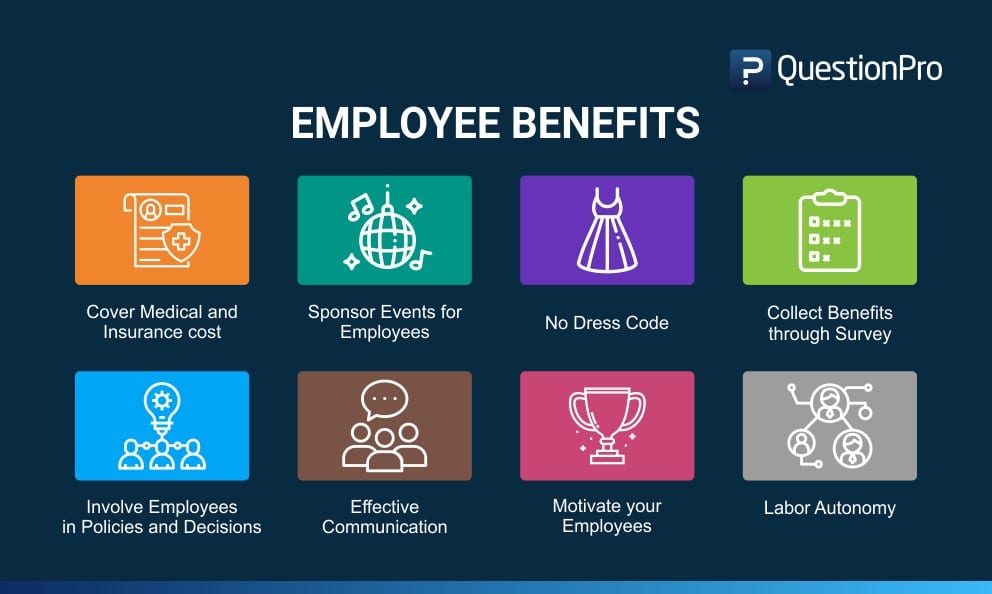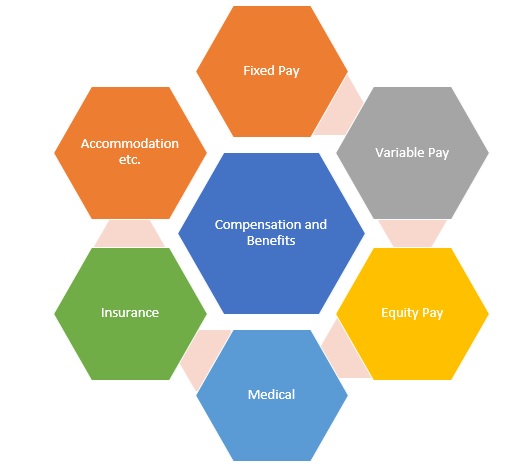What Is the Best Definition of Employee Benefits
Employee benefits include non-wage compensation in addition to regular salary. Employee benefits are any perks offered outside of an employees regular salary or pay.

Employee Benefits Definition With 8 Types And Examples
Employee Benefits Definition.

. Talent-minded organizations know that their people are their greatest lever for business success. Employee compensation refers to the benefits cash vacation etc that an employee receives in exchange for the service they provide to their employer. Employee compensation is generally one of.
Since the onset of the COVID-19 pandemic the world is changingin some ways potentially forever. Medical insurance life insurance disability insurance and retirement plans. The purpose of employee benefits is to make the work more attractive and rewarding therefore directly improving employee retention.
Here are the essential workplace benefits that help your employees protect their physical and financial wellness. That means youll need to consider both some tried and true employee benefits packages and perks as well as some new ones that are more reactive to the times. They may be less interested in a benefits-rich health plan in order to have vision or some other coverage.
The 33 Best Employee Benefits Packages and Perks for 2021. Benefits are indirect and non-cash payments within a compensation package. Benefits like employer-subsidized health insurance paid sick leave paid vacation time and corporate discounts can be good incentives to attract and retain quality employees.
Employee benefits are any kind of tangible or intangible compensation given to employees apart from base wages or base salaries. Employee benefits also known as perks or fringe benefits are provided to employees over and above salaries and wages. The business case for employee engagement.
Voluntary benefits otherwise known as supplemental insurance or employee-paid benefits are products benefits or services offered by employers but mostly or fully paid for by employees via payroll deductions at a reduced group price. 2 These benefits are not given to the worker for any specific performance of the jobs but they offered boosting his interests in work and make the job more productive for him. As an essential pillar of the onboarding process orientation is an event that will help your new hire get off to the best possible start.
Employee Benefits Mandated by Law. Having a well-balanced workforce that has the skills to innovate and compete for new business opportunities is one benefit that robust employee development plans offer to organizations. One increasingly popular benefits plan is a cafeteria plan where employers allocate a specific amount of money to apply to the benefits the employee wants.
Employees who work for companies that provide them with attractive benefits are more likely to stay. Employee benefits are an additional form of compensation for the employees of a company that helps create job satisfaction. There are four major types of employee benefits many employers offer.
This has become a must-have benefit for all private employers as nearly all of todays workforce will be responsible for funding their own retirement. A complete employee benefits package may include health insurance life insurance paid time off PTO profit sharing retirement benefits and more. These employee benefit packages may include overtime medical insurance vacation profit sharing and retirement benefits to name just a few.
The Bureau of Labor Statistics like the International Accounting Standards Board defines employee benefits as forms of indirect expenses. This employee benefits definition points to examples of job benefits such as insurance including medical dental life stock options and cell phone plans. Employees in a company look out for extra benefits in every company so that they can have a great time working in the place.
Employee benefits may be required by law depending on the risk associated with the job or industry and the laws of the country where the job is held or provided voluntarily by the employer. These non-wage benefits can include training opportunities coffee bars health insurance retirement accounts stock options and more. Why are employee benefits important.
Such programs not only develop existing skills but can be used to deliver longer-term competitiveness by instilling new skills that might be needed in the future. Employee benefits are non-financial compensation provided to an employee as part of the employment contract. Benefits go above and beyond an employees base salary and can come in many forms including healthcare life insurance and paid time off.
28 the fair labor standards act uses the following uninformativedefinition of employee in the statutory language. Provide a good benefits package. From an employees point of view a good package of benefits.
Employee engagement is appealing to HR because of its immediate benefits in employee retention recruitment job satisfaction and happiness. 1 Employee benefits are those payments which are paid to him in addition to the wages and salary he receives. Managers tend to view compensation and benefits in terms of their ability to attract and retain employees as well as in terms of their ability to motivate them.
Various types of employee benefits typically include medical insurance dental and vision coverage life insurance and retirement planning but there can be many more types of benefits and perks that employers choose to provide to their employees. Below weve loosely categorized these types of employee benefits and given a basic definition of each. They are provided by organizations in addition to salary to create a competitive package for the potential employee.
Employee benefits can be understood as the additional perks that businesses offer to their employees over and above their regular salary. Employee benefits are any benefits provided to employees in addition to their base salaries and wages. 16 types of employee benefits you should consider.
They are also sometimes called employee perks. Employee benefits are non-salary compensation that can vary from company to company. Employee benefits are non-wage compensations which are provided to employees in addition to their salaries.
3 Employee benefits represent labour cost. But the benefits of employee engagement span much further than HR. Employee orientation plays an integral role in the ongoing success and growth of any modern organization regardless of niche or sector yet many businesses overlook this essential part of the onboarding process.
Any individualemployed by an employer however congress and the courts haverecognized that because of its primary focus on protecting workersthe definition of employee under the act is the broadest one usedpursuant to the. Have flexible time-off policies.

Compensation Benefits Meaning Importance Types Components Example Mba Skool


No comments for "What Is the Best Definition of Employee Benefits"
Post a Comment